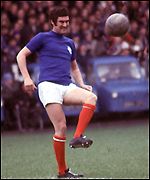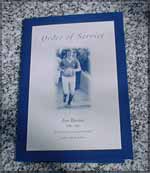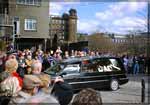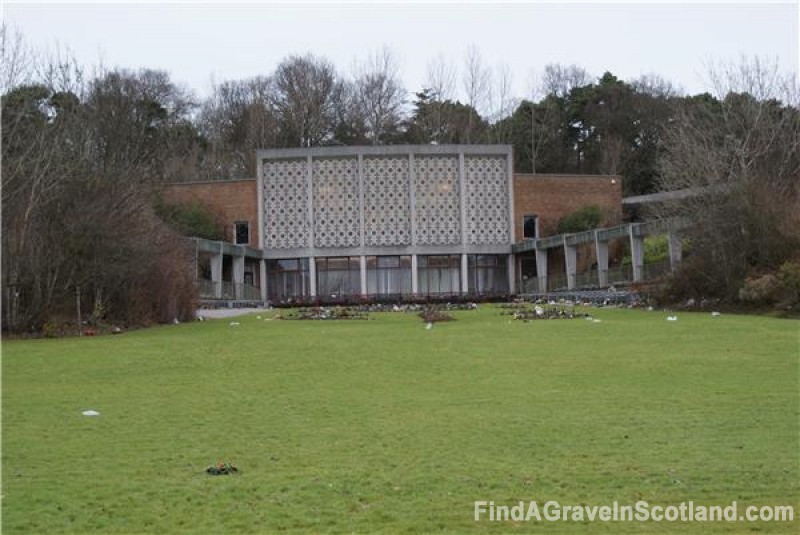Member Login
Free Search
Enter First Name, Last Name or Full Name and click Search,or click on the Advanced Search link for more options
Famous Scots - Jim Curran Baxter



James Baxter, footballer: born Hill of Beath, Fife 29 September 1939; played for Glasgow Rangers 1960-1965, 1969-70, Sunderland 1965-1968, Nottingham Forest 1968-1969; two sons; died Glasgow 14 April 2001.
The Glasgow Rangers wing-half Jim Baxter accumulated 34 caps for Scotland over six years, in an era when there were far fewer internationals. Three decades have passed since Baxter hung up his boots, and three and a half since he was at his peak but at Wembley, on 15 April 1967, he contrived a performance for Scotland which, in the words of Alex Ferguson, who was present at the game, "could have been set to music".
According to the veteran football correspondent Geoffrey Green,
There were four cornerstones of the victory, each deserving of the praises of wandering minstrels Law, dramatic, a blur of blue with his swift thrusts, commanding and infectious as he played for his very life; Baxter, cool, elegant and arrogant as he put his foot on the ball, reducing the tempo to a walking pace while he teased the wounded bull like a matador; Bremner, tireless and combative with fire and metal in his heels; and the baby of the party, McCalliog, a new cap who played the role of link man with surprisingly subtle maturity.
Scotland won 3-1, away and against the "auld Enemy", and England were the same side (other than Jimmy Greaves coming in for Roger Hunt) who had won the World Cup against Germany on the same ground a mere 10 months earlier.
Jim Baxter was born in the Fife mining village of Hill of Beath in 1939, and, after attending the local primary school, where he was nicknamed "our wizard", such was his natural skill with a leather ball, went on to Queen Anne's Secondary Modern School in Dunfermline. He was a natural comedian and "our wizard" gave way to another nickname, "Stanley", after Stanley Baxter.
It was his singular good fortune that the Headmaster, James Carmichael, was an ex-Services disciplinarian and football enthusiast. Carmichael took a keen interest in his pupils even after they left school and, resisting the temptation to sign forms for a glamour club, which for young Baxter would have been fatal, fixed him up with Halbeath Juveniles, who nurtured him and passed him on to Crossgates Primrose.
It was again good fortune for this potentially wayward youth that the Primrose was run by Bill Buckard and George Ferrier tough Fifers from the coalfield. They disciplined him and, when he was 18, handed on a prodigious talent to Bert Herdsman, who ruled Stark's Park, Kirkcaldy, the ground of Raith Rovers, with his captain, "Iron Man" Willie McNaught.
By the time, in 1960, that he arrived in the competitive fishpond which was Scott Symon's Ibrox, Baxter was a seasoned article, not a callow and vulnerable, if talented, youth. Ever candid about his shortcomings in relation to drink, women, gambling and most known temptations, he told me, years later,
You ken, I would never have made it in today's circumstances. I needed bastards like Carmichael, Buckard, Ferrier, Herdsman and McNaught. Young players like I was would simply tell them to get stuffed and take their talent elsewhere. I owe them.
In 1961 Scotland's most humiliating match had taken place at Wembley, when England knocked nine goals past Scotland's débutant goalkeeper Frank Haffey with the Scots only managing three goals in reply. "What's the time?" went the popular joke. "Nearly 10 past Haffey." The unfortunate Haffey never played a game for Scotland again and Scottish goalkeeper humour was born.
I remember going to Hampden Park on Saturday 14 April 1962, along with 134,000 other people, as an afternoon off from canvassing in the West Lothian by-election in which I was the candidate. Miraculously the Scots turned the tables 2-0 on England, and as a political candidate I was most certainly the beneficiary of the feel good factor. I guess I owed much to Jim Baxter's sublimely skilful display that afternoon.
A year later, on 6 April 1963 at Wembley, the Scots again won 2-1. The Press Association (PA) referred to "the new-born riot of self- expression that bubbled freely from Baxter, Mackay, White and Law, the all-important quadrilateral that formed the heart of the Scottish effort." Baxter, particularly, at wing-half, was unequalled. His fluency, imagination and control raised echoes of the great Hungarian Josef Boszik in the 1950s and it was his field-day, quite apart from the scoring of both Scottish goals.
The PA described the scene,
Within two minutes Scotland were two up. Henderson, quick as a goldfish, dummied through a gap. But Flowers and the bewildered Byrne sandwiched him. The Dutch referee pointed with both hands to the penalty spot as if to emphasise his verdict. Baxter's shot was exemplary, his first-ever penalty kick.
On Saturday 11 April 1964, at 20 minutes to five on a stormy wet afternoon, we stood roaring in the deep bowl of the then unreconstructed Hampden Park. The yellow standards and the tartan bonnets waved; the roar was as persistent as had been the wind and rain all day. The crowd simply refused to budge. We were ecstatic, as PA judged: "Once Baxter and Law had got fire in their Scottish stomachs there was no comparison between the attacks and only untidy finishing kept the final margin close Scotland 1, England 0." All around me agreed that Baxter was the man of the match.
England and Scotland drew at Wembley on 10 April 1965. The truth is that Baxter was not the force that he had been. In the previous December, just 30 seconds before the end of a European Cup tie away to Rapid Vienna captained by their great centre-half Ockwirk in which Baxter's brilliance had brought Rangers a 2-0 victory he sustained a broken leg. It was when Baxter was immobilised for so long, out for four months, that his drinking started and began to have an effect on his fitness.
England beat Scotland 4-3 at Hampden Park on 4 April 1966. Baxter was far from the inspiration that he had been. It was considered that it would be better if he left Ibrox and made a fresh start at Roker Park. The truth is that Sunderland were disappointed and in 1968 passed him on to Nottingham Forest, who were even more disappointed.
Baxter had done his greatest work by the time he reached his middle twenties. He had been simply uncanny in his judgement of angles, speed and flight of a ball. My personal best memory of Baxter on the field is actually in defeat. Frankfurt Eintracht were playing Rangers in the semi-finals of the European Cup, where in the final they were to lose 7-3 in that memorable game at Hampden Park where Real Madrid were to overwhelm them. Baxter proved that night that he could play for any club in the world and that was before he had won a Scottish cap.
Legendary drinking, going to parties and all other fleshly delights became part of his life. Yet his flamboyance was never that of the superficial dilettante. The charming happy-go-lucky aspect of his character ensured a certain appeal not to mention enough headlines to paper a ballroom. It would simply have been impossible for somebody of Baxter's attachment to self- indulgence not to have left some damage in his wake.
I had one serious conversation with him though I met him a number of times when he was in jocular mood. The conversation concerned his passionately felt dismay at the bigotry and antagonism encapsulated in the Celtic versus Rangers sharpness of recent years.
Billy McNeill, the former Celtic captain who was a contemporary and rival, was one of Baxter's closest friends for the past four decades. He says ,I think part of the friendship between Pat Crerand, Mike Jackson, myself and other Celtic players was due to the fact that when Jim arrived in Glasgow he didn't know anybody. For some reason I can't remember how it came about he fell in with us. Maybe it was different then. Old Firm players tended to be more friendly, perhaps because we respected each others' situation and views on the game. But Jim was a very good friend to have. With him, the religious element between Celtic and Rangers simply didn't come into it.
But although we were great friends off the park, he was a right cheeky bastard. He loved to rub our noses in it when Rangers were on top and he would take the mickey. We didn't like it one bit. But life for him was always just a ball. He played it to the full and possibly didn't allow himself to realise the talent he had
http://www.britishpathe.com/record.php?id=43189
Headstone Photograph

Further Information
Firstname: Jim Curran
LastName: Baxter
Date of Death: 14th Apr 2001
Age at Death: 61
Cemetery: Lambhill cemetery
957 Balmore Road
Town: Glasgow
PostCode: G23 5LB
Region: Glasgow and Clyde Valley
Country: Scotland
Please Note, the marker on this map indicates the Cemetery location, not the location of a particular grave.
<< Back



